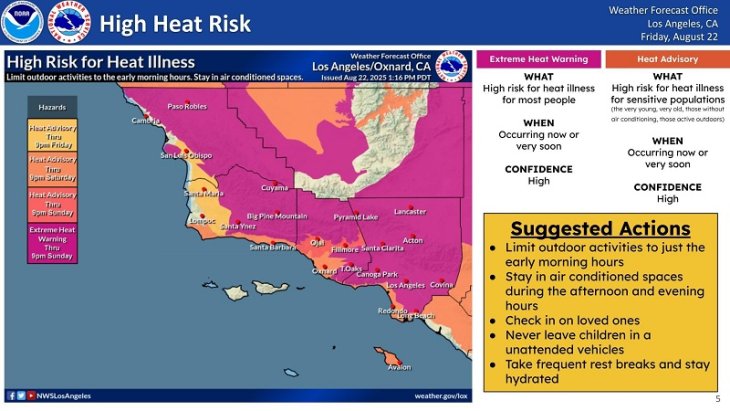Taxpayers Encouraged to Prepare Early as IRS Unveils New Tools
By Dolores Quintana
The Internal Revenue Service (IRS) announced today that Monday, Jan. 29, 2024, will mark the official commencement of the nation’s 2024 tax season, signaling the commencement of the acceptance and processing of 2023 tax returns.
The IRS anticipates an influx of over 128.7 million individual tax returns by the April 15, 2024, tax deadline.
While the IRS will officially initiate the acceptance and processing of tax returns on Jan. 29, individuals using software companies or tax professionals can begin working on their taxes before then. Many software companies accept electronic submissions, holding them until the IRS is ready for processing later in the month. IRS Free File will also be accessible on IRS.gov starting Jan. 12, preceding the filing season opening. The IRS Direct File pilot, undergoing final testing, is expected to be widely available in mid-March to eligible taxpayers in participating states.
Continuing its transformation efforts, the IRS aims to build upon the successes of the 2023 tax season, focusing on enhancing services for taxpayers throughout the 2024 filing season.
“As our transformation efforts take hold, taxpayers will continue to see a marked improvement in IRS operations in the upcoming filing season,” noted IRS Commissioner Danny Werfel. “IRS employees are working hard to ensure that new funding is utilized to assist taxpayers, making the tax preparation and filing process more accessible.”
Some of the new and expanded tools and resources include:
- Expanded in-person services, with Taxpayer Assistance Centers (TACs) reopening or opening in various locations, offering extended hours nationwide.
- Increased help on the toll-free line and an expanded customer call-back feature to reduce wait times significantly.
- Improvements to the Where’s My Refund? tool, enhancing refund status messaging and compatibility with mobile devices.
- Enhanced paperless processing, allowing digital submission of correspondence, non-tax forms, and responses to notices, along with the ability to e-file 20 additional tax forms.
- An upgraded IRS Individual Online Account with chat functionality, scheduling and canceling future payments, revising payment plans and validating and saving bank accounts.
- Introduction of Direct File, a pilot tax filing service, providing eligible taxpayers with a new option to file 2023 federal tax returns online for free, directly with the IRS, expected to be widely available in mid-March.
The tax filing deadline for most taxpayers is April 15, 2024, with residents of Maine or Massachusetts having until April 17, 2024, due to the Patriot’s Day and Emancipation Day holidays. Taxpayers residing in federally declared disaster areas may also have additional filing time.
To facilitate a smooth filing process in 2024, the IRS advises taxpayers to prepare by gathering all necessary information, including Social Security numbers, Individual Taxpayer Identification Numbers, Adoption Identification Numbers, and Identity Protection Personal Identification Numbers. Filing electronically with direct deposit remains the fastest and easiest way to receive a refund.
IRS Free File opens on Jan. 12, 2024, providing a free service on IRS.gov for taxpayers with Adjusted Gross Income of $79,000 or less in 2023. Free File Fillable Forms, part of this effort, becomes available at no cost for any income level starting Jan. 29, 2024.
While the IRS aims to issue most refunds in less than 21 days, taxpayers are cautioned not to rely on specific dates, especially for major purchases or bill payments. The Where’s My Refund? tool on IRS.gov or the IRS2Go app offers the easiest way to check refund status.
Under the federal Protecting Americans from Tax Hikes (PATH) Act, Earned Income Tax Credit (EITC) and Additional Child Tax Credit (ACTC) refunds cannot be issued before mid-February. Most early EITC/ACTC filers should see updated statuses by Feb. 17, with refunds expected in bank accounts or on debit cards by Feb. 27 for those who chose direct deposit.
For comprehensive information and tools to aid in filing, taxpayers are encouraged to visit IRS.gov, where resources such as the IRS Individual Online Account, Interactive Tax Assistant, and the IRS Directory of Federal Tax Return Preparers are readily available.
As the 2024 filing season approaches, the IRS remains committed to providing assistance through various programs, including the Volunteer Income Tax Assistance (VITA) and Tax Counseling for the Elderly (TCE) initiatives. Additionally, MilTax offers free return preparation and electronic filing software for federal income tax returns and up to three state income tax returns for military members and some veterans.
Key dates for the 2024 filing season include:
- January 12: IRS Free File opens.
- January 16: Due date for 2023 fourth quarter estimated tax payments.
- January 26: Earned Income Tax Credit Awareness Day.
- January 29: Filing season start date for individual tax returns.
- April 15: Due date of filing a tax return or requesting an extension for most of the nation.
- April 17: Due date for Maine and Massachusetts.
- October 15: Due date for extension filers.





















